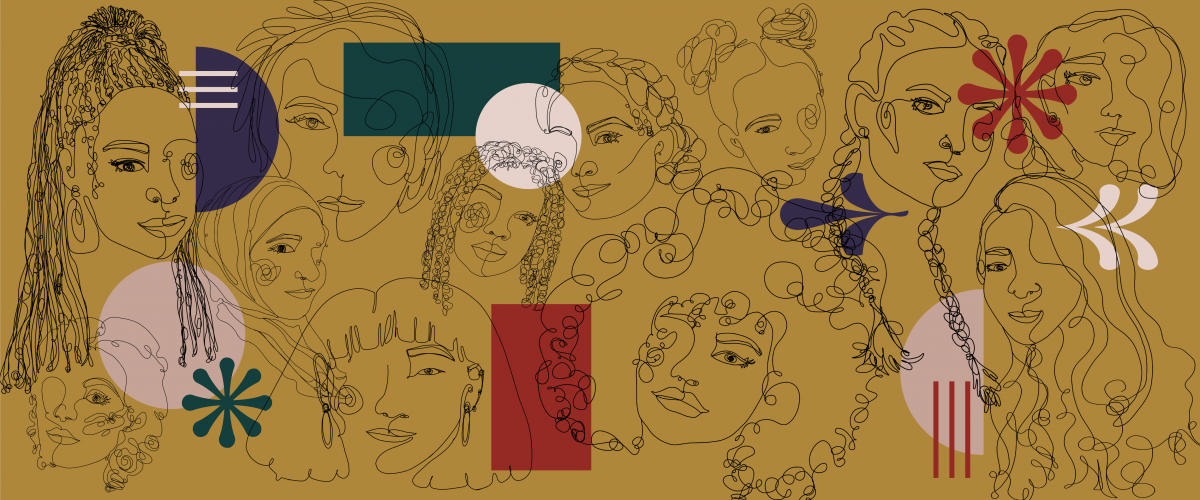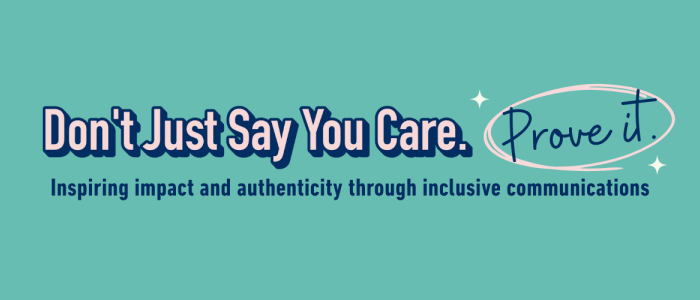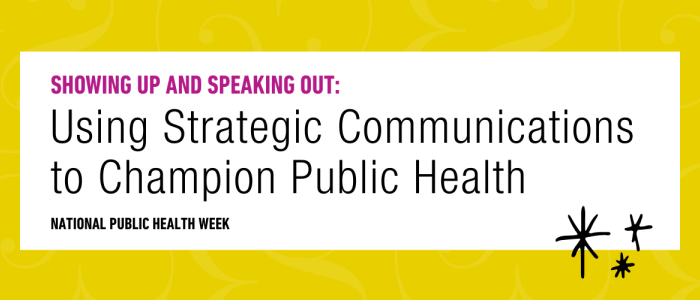
Each year around the winter holiday season, instead of spending money on client gifts, P&G donates to a nonprofit or series of nonprofits representing a cause about which we’re collectively passionate.
This year, as we brainstormed and talked, a theme emerged and evolved into our 12 Days of Empowerment, during which we would donate to and amplify a different organization dedicated to women’s empowerment on 12 days in December.
We brainstormed a list of amazing and inspiring organizations and asked each team member to select one nonprofit that means something personal to them, one that contributes to improving the lives of women.
Women.
And that’s where the conversation moved beyond these fantastic organizations and into the murky waters of words. Of intent and impact. Of not really knowing what the fuck to do, but not wanting to hurt anyone as a result.
Words have power.
Words matter.
And we understand – ultimately, I understand, as it was my final call to use the word women – that words have an impact.
When it came to the exact word(s) we would use to categorize these different organizations, we struggled. I struggled.
Saying, “We’re doing our best and that’s enough” feels like a monumental bit of bullshit to me. It’s not enough.
It’s important for all of us to be willing to say this shit matters, and sometimes you just don’t know what the right answer is, and that’s tough.
This is one of those instances where I genuinely didn’t know what the fuck to do. Was the term women excluding people? Was it hurting people who don’t identify as women?
So, we discussed. And we read the perspectives of different people. And we looked at standards and norms in writing. And we sought external counsel.
And then I made the choice to go with women, based on all of that.
But instead of just making the decision and going with it, we also thought it might be helpful for others to know and understand what happened behind the scenes to get us where we landed. Why? Because I think we need to normalize and encourage uncomfortable conversations for white-cis-hetero audiences, and we need to just do fucking better. This isn’t a pat-on-the-back plea. This is a what-we-should-be-doing-every-chance-we-get thing.
In our conversation, the first place we went in trying to be more inclusive with our language was to say “women and female-identifying or nonbinary people.” But that brought up the very valid concern that phrases like “women and nonbinary folks” may have good intentions, but in the end the language groups nonbinary individuals in a binary gender.
One article suggested saying “underrepresented genders,” but that didn’t sit right with our intent. For us, women’s empowerment isn’t about underrepresentation per se (and the term “underrepresented” has its own set of issues). To our team, focusing on women’s empowerment was about supporting orgs focused on overcoming historical oppression and violence, providing equal opportunities and treatment, and protecting bodily autonomy.
Then, inspired by this SheThePeople article, we asked if womxn would feel more inclusive to people and, frankly, whether or not it was authentic?
We considered elaborating to say, “this includes cis women, trans women, nonbinary people, and those who are otherwise marginalized based on gender,” (a partial quote from Quinn Crossley’s Medium piece).
A team member then pointed out a whole rabbit hole of tweets about using the term womxn for nonbinary and trans people. Much of the Twitter discussion highlights how “womxn” can feel invalidating because it implies trans people aren’t “real women” and it puts nonbinary people again into a category they aren’t asking to be a part of.
One of our researchers found academic validation of these themes: Womxn can be considered problematic because trans women already identify as women, and nonbinary people don’t identify as women at all. The research also indicated the term womxn was likely not created by nonbinary/trans people.
Which is when our discussion of “what word?" came back around to impact. The ultimate goal in analyzing the language we used to label the nonprofits we’d support was to start a conversation about donating to inclusive nonprofits. It was important to our team members (and the world) that we supported empowerment beyond cis women. We wanted to ensure our dollars went to organizations inclusive in nature and supportive of intersectional feminism.
And these 12 nonprofits do that – they support people beyond cis women, are inclusive and support women of color.
The thread that ties all these orgs together, though, is supporting women. Women’s empowerment sure as shit isn’t the only cause important to creating a more just, equitable society. I’ll trust you don’t need me to try to capture the full list of social justice issues we need to tackle. Women’s empowerment is just one of these issues, and it’s the one we’re focusing on for this tiny slice of our passions.
Did I make the right call with “women”? I have no fucking idea, to be honest. And I feel like admitting we don't know if we're doing this right is important. And it’s important for us to acknowledge that impact is more important than intent.
We value feedback, and I take responsibility for any missteps on this path, so if you think “women” was the wrong term or hurtful and you WANT to reach out (because it’s certainly not your job or responsibility to call out a cis-white-hetero lady if you don’t have the energy or inclination), please do. I’m at kate@piperandgold.com or 517-999-0821, and I promise to keep my fucking mouth shut and listen, tamp down the reflex to be defensive, to learn, accept responsibility and continue working to do better.
Thank you.



